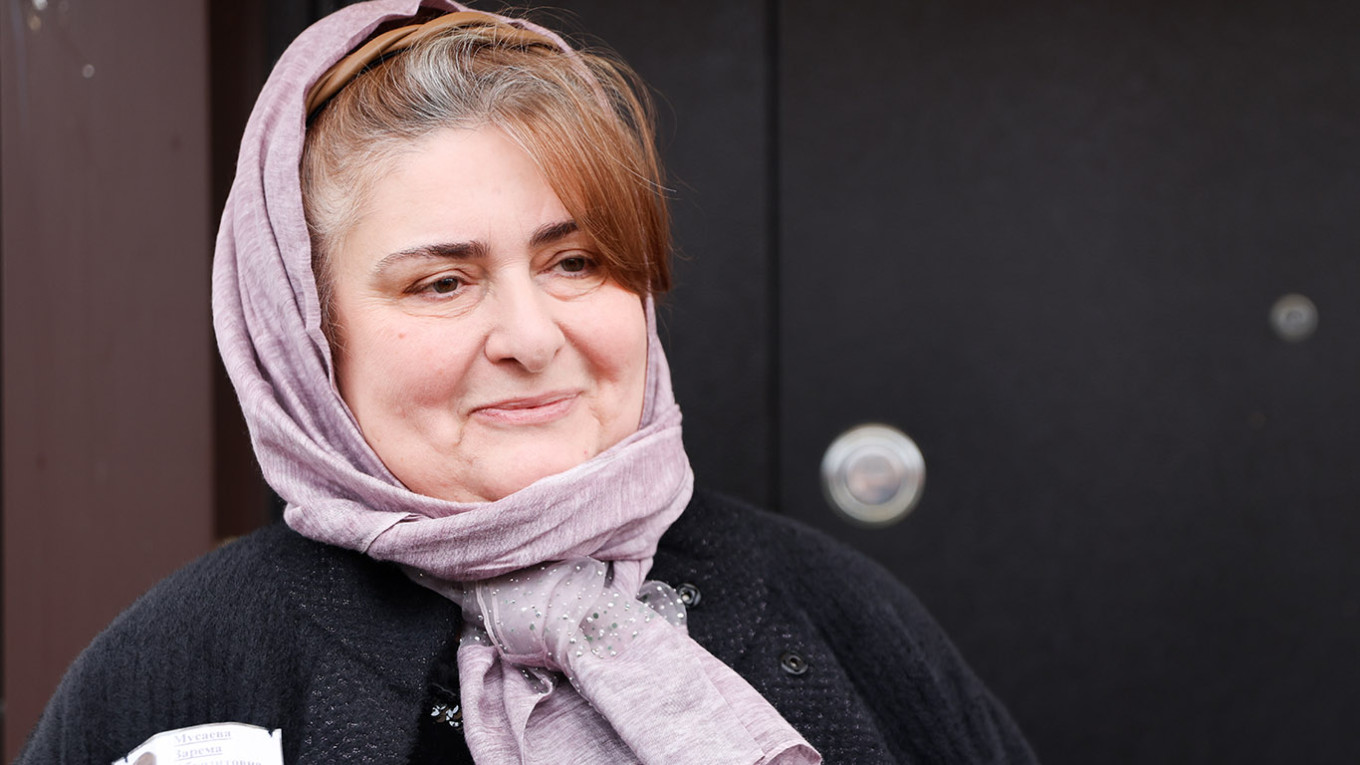The imprisoned mother of a prominent critic of Chechen leader Ramzan Kadyrov has been sent to the hospital to undergo medical treatment after her lawyer petitioned the authorities to allow her to receive care due to her declining health.
Zarema Musaeva, the mother of activist Abubakar Yangulbaev and the wife of a retired federal judge, is serving a five-year prison sentence for fraud and assault on a police officer. An earlier sentence was reduced by six months because of her chronic diabetes.
Last month, Musaeva’s lawyer, Alexander Savin, said her blood sugar was “approaching a critical mark” after weeks of increasing. The lawyer said at the time that prison staff had requested her hospitalization, but “there has been no response.”
The human rights group Crew Against Torture said Monday that Savin was notified about Musaeva’s hospitalization after he went to attend a parole hearing. Musaeva did not appear at the hearing, which was rescheduled to Nov. 12.
“It is not yet known how long Zarema will stay at the hospital,” the Crew Against Torture said in a post on Telegram.
Earlier this year, the European Court of Human Rights ruled Musaeva’s arrest to be “arbitrary and intended as retaliation against her family,” who were involved in human rights work and opposition activities in Chechnya.
“The hurried administrative proceedings against her, without legal representation and while she was quite obviously unwell, had breached fair trial guarantees,” that ruling read.
The Strasbourg-based court ordered Russia to pay 52,000 euros ($56,500) in damages to Musaeva. It also ordered Russia to pay 6,500 euros each to Musaeva’s husband Saidi Yangulbayev and daughter Aliya Yangulbayeva for injuries suffered during Musaeva’s detention.
A Message from The Moscow Times:
Dear readers,
We are facing unprecedented challenges. Russia's Prosecutor General's Office has designated The Moscow Times as an "undesirable" organization, criminalizing our work and putting our staff at risk of prosecution. This follows our earlier unjust labeling as a "foreign agent."
These actions are direct attempts to silence independent journalism in Russia. The authorities claim our work "discredits the decisions of the Russian leadership." We see things differently: we strive to provide accurate, unbiased reporting on Russia.
We, the journalists of The Moscow Times, refuse to be silenced. But to continue our work, we need your help.
Your support, no matter how small, makes a world of difference. If you can, please support us monthly starting from just $2. It's quick to set up, and every contribution makes a significant impact.
By supporting The Moscow Times, you're defending open, independent journalism in the face of repression. Thank you for standing with us.
Remind me later.






